
views
Protecting Your Rights During a Police Stop
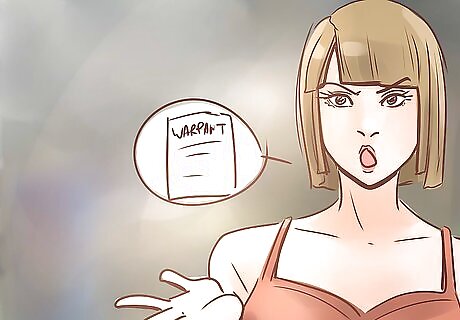
Ask to see a search warrant. If the police come to your home to search, then ask to see a search warrant. Police generally need a warrant to search your home. The officer should be willing to hold it up to a window or pass it to you so you can read it. Check to make sure that the address on the warrant is correct. If not, then hand it back to the police and tell them the address is wrong.

Provide required information. You cannot be completely silent when the police stop you. For example, you are required to provide some basic information to the police. This information will differ depending on your state. However, in most places you have to provide the following: license, registration, and proof of insurance (if stopped while driving) name address date of birth

Avoid answering other questions. After providing required information, you shouldn't answer any other questions. Instead say, “I want to remain silent.” You should explicitly say those words. The police cannot detain you for refusing to talk. It is often helpful for the police to get you to talk. They might start asking you random questions, like “What are you doing out here right now?” and “Where are you headed?” They are asking these questions hoping you slip up and reveal something they can use against you. Although you can’t be detained for refusing to answer questions, it might look suspicious if you start answering questions but then stop. For this reason, stay silent throughout the entire encounter.

Refuse to consent to a search. The Constitution limits a police officer’s ability to search you. For example, the officer must have “reasonable suspicion” that you have committed or are about to commit a crime in order to briefly detain you and perform a “pat-down.” Also, the officer typically needs “probable cause” that you have or will commit a crime in order to arrest you. Because an officer might not have either reasonable suspicion or probable cause, they may ask “Can I search you?” They are asking for your consent. You should refuse to consent. Say, “No, I don’t consent to a search.” Keep saying it regardless of what they want to search. Once you consent to a search, you can’t later claim it was unconstitutional. Police want you to consent because it makes their jobs easier. It is easier for them to get you to consent than to show a judge that they had probable cause to search your car or belongings.
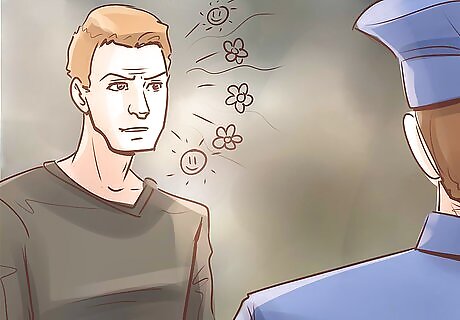
Treat the officer with respect. You have a constitutional right to bad-mouth a police officer. However, you run the risk of angering the officer and making the situation worse. Although you want to protect your rights, you also need to protect your safety. Always call the officer “Sir,” “Ma’am” or “Officer.” Police officers are people, too. If you starting acting verbally aggressive, their blood pressure will probably go up. Don’t talk over the officer or raise your voice. Accept any ticket the officer gives you. Don’t resist. You can always fight a traffic ticket later if you think you didn’t deserve it.
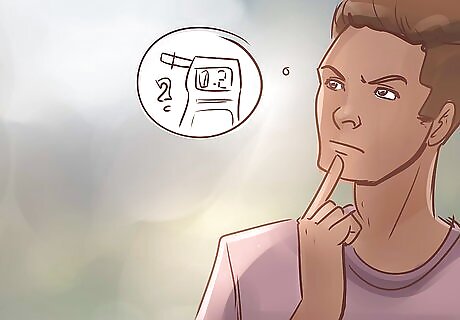
Consider taking a breathalyzer test. If you are stopped on suspicion of driving under the influence (DUI), then the officer might ask that you take a field sobriety test and a breathalyzer. You don’t have to comply. However, you will face consequences for refusing. The consequences differ by state: In some states, refusal to take a breathalyzer or field sobriety test will result in your license being suspended. The police don’t even have to prove you had a high blood alcohol concentration (BAC). Instead, your simple refusal to take the test can result in a suspension. In other states, you can also be fined and charged with a misdemeanor for refusing to take the test. To fully protect yourself, you should read up on your state's law so that you will know the consequences you face for refusing to take the test. You can find your state's law online, by searching "your state" and "implied consent laws."
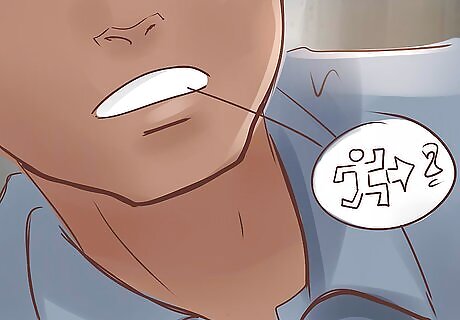
Ask if you can leave. The police can’t detain you unless they have a reason. For example, an office might have reasonable suspicion that you have a firearm on you. He or she can ask to pat you down, but if no weapon is found then they can’t continue to detain you. Always ask, “Am I free to go?” If the officer says, “Yes,” then calmly leave. Don’t run or make any sudden movements which an officer will consider suspicious. The officer might give a vague answer or ask you another question instead of answering. Don’t answer the question. Instead ask, “Am I free to leave?” once again. If the officer says, “No,” then ask why: “Why are you detaining me?” The officer should have a reason.

Stay calm. Some officers may not have a reason for detaining you. Instead, they could be harassing you. Although this is illegal, you must remain calm. Don’t argue or become physical with the police. Always make sure that they can see your hands. If the police arrest you, do not physically resist. Some people will resist but shout out, “I’m not resisting!” That doesn’t help anyone. The police will respond to your physical actions, not what you are saying.
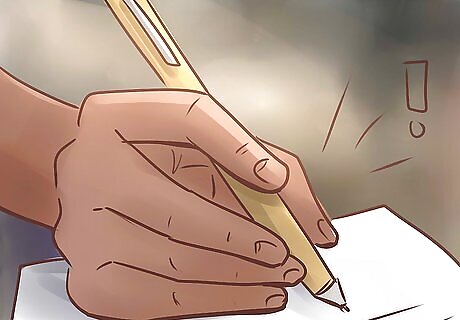
Take down important information. If you think you have been stopped or detained illegally, then you should gather important information from the police officer: name, badge number, patrol car number, etc. You are allowed to videotape any encounter with a police officer in a public space, such as a street or sidewalk. However, police might become upset if you start recording the encounter. If so, then you face a choice: continue to record and upset the officer, or stop recording and not have a visual record of the encounter. As an alternative to recording, you can have a bystander observe the encounter. Get that person’s name so that they can serve as a witness.
Securing Your Rights After an Arrest

Request an attorney. After arrest, you should tell the arresting officer you want to talk to an attorney. You should say, “I want to talk to my attorney.” You will be able to get in touch with an attorney once you are taken to jail and booked. “Booking” is how an official record of the arrest is made. During this process, you will have to turn over your personal valuables (like a cell phone) and possibly have a mug shot taken (among other things).

Continue to remain silent. You have to give your name and some other personal information as part of the booking process. However, you shouldn’t volunteer any other information. Don’t answer any questions asked by a detective or jail guard about the incident. You can ask to go to bathroom or to make a phone call, but you really shouldn’t say much else.

Remember that the police can lie to you. The police hope that you try to “talk you way out” of an offense because this makes their life easier. Chances are you will slip up and saying something that will incriminate you. For this reason, some police will lie to you. Common lies include: A witness saw you commit the crime. Actually, it doesn’t matter whether there was a witness. If there was, then you can’t talk your way out of the crime. If there wasn’t a witness (and the police are lying), then talking will only dig you a deeper hole. Always remain silent. The police won’t charge you if you confess. In truth, the police don’t decide whether to bring charges. The district attorney does. The police will get you a lighter sentence. Again, the police have no power over this. The district attorney recommends a sentence and the judge ultimately decides your sentence. They will let you go if you talk. Actually, the police will probably have to let you go anyway, as soon as you get bail. If the police hold you for too long without probable cause, they open themselves up to a lawsuit.

Call an attorney once in jail. After booking, you should have an opportunity to make a phone call. There may be phones in the jail. Each jail is run a little differently. Generally, however, you will be able to make phone calls to get an attorney lined up. In some jails, there might be a list of attorneys you can call. You can pick someone off the list. If there’s no list, then you should call a responsible adult and tell them where you are. They can then find a lawyer for you. If you have no money, you might have to wait until your first appearance in front of the judge to ask for a public defender. You will have to complete an application.

Get bail. Depending on your situation, you may be able to post bail shortly after booking. “Bail” is an amount of money you post in order to get released from police custody. You also promise to attend all of your hearings and the trial. If you fulfill your promises, then the money is refunded at the end of the case. In many states, common crimes (such as DUI) have a set bail amount. For some crimes, there isn’t a set bail schedule. In this situation, you’ll need to appear before a judge, who will decide whether you are entitled to bail. Your lawyer should be with you when bail is set. See Post Bail for more information.

Avoid talking about the incident with anyone. Anything you say can be used against you at trial—even statements made to friends or family. For this reason, you shouldn’t discuss your case with anyone. If someone asks, just say, “No, I don’t want to talk about it.”
Filing a Complaint Against the Police
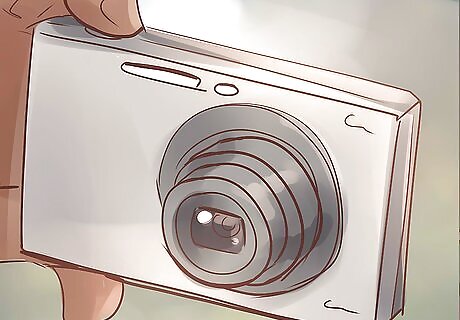
Document any injuries. You might have been roughed up during an arrest. As soon as possible, you should take photographs of any bruises, cuts, nicks, scratches, or wounds. Take vivid photographs, and get close-up photographs as well as whole-body shots. Your mug shot should also show any injuries to your face, although it won’t show injuries to the rest of your body. You should also seek medical treatment for your injuries. Ask the doctor or hospital for copies of your medical records.

Determine if the police used excessive force. Police officers do not have to use the least amount of force necessary to arrest you. However, sometimes they use too much. There is no simple definition of excessive force. Instead, a court will look at the following: The severity of your suspected crime. For example, if the police suspect you of littering, then they should use less force than if they suspect you of armed robbery. Whether you are actively resisting arrest. If not, then they shouldn’t use much force. If you are fleeing. If so, then the police can use more force to arrest you. Whether you pose an immediate threat to the police officers or bystanders. For example, if you are waving around a gun or in control of a car, then the police can use more force since guns and cars can be dangerous weapons.
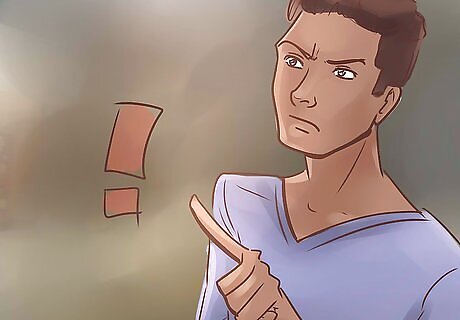
Identify other police officer violations. You can file a complaint for violations other than excessive force. For example, the police might have committed one or more of the following violations, which you can also report: The officers are harassing you. The police use demeaning or insulting language. For example, the police should not use slurs or cuss words. The police discriminate against you, e.g., because of your race or ethnicity. The officers are retaliating against you because you already filed a complaint about their conduct. The officers failed to display or wear their identification, or they didn’t identify themselves when asked.

Request a complaint form. You can get a complaint form from the police department. You should call or stop in. Some departments make their complaint forms available online for download. This can make it easy to enter the information.

Complete the complaint. Print neatly or use a typewriter. You want the person reading it to be able to understand what you have written. Each form will request different information, but generally you will be asked for the following: your name your contact information (home address and telephone number) your work address your age, gender, and race/ethnicity where the incident occurred the date and time of the incident names of any witnesses witness contact information names of the officers involved description of the officers, such as height, hair and eye color, sex, race/ethnicity police vehicle number or description your injuries where you received treatment

Submit your complaint. Make a copy of the complaint for your records, and then submit the complaint form using one of the methods approved by the police department. For example, you can typically hand deliver or mail it. You might also be able to fax it or email the complaint form as an attachment.

Talk to your attorney with questions. You should also discuss an excessive force lawsuit with an attorney. You probably can’t sue for other violations, but it is unconstitutional for a police officer to use excessive force to detain you. You should schedule a consultation with an attorney to discuss your options. You can find a civil rights attorney by contacting your local or state bar association. Ask for a referral. You may also contact a legal aid organization, like the local chapter of your ACLU. Show the attorney photographs of your injuries and explain what happened. Be honest. Your lawyer needs all of the facts to properly analyze your claim.
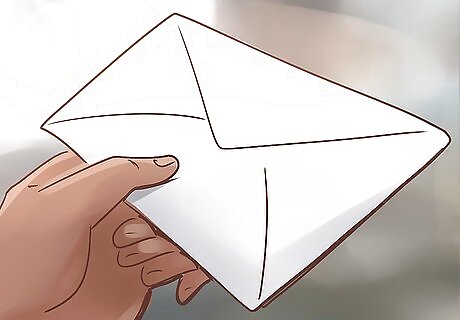
File an excessive force lawsuit. You can file this type of lawsuit in federal district court. Your lawyer will complete a “complaint” and file it with the court. In the complaint, you explain the excessive force and ask for compensation. You should hire an attorney to handle the lawsuit for you. If you win, then you might be able to get the police officer to pay your attorney’s fees. Also, many attorneys will represent clients on “contingency” for excessive force claims. This means that the attorney agrees not to charge you fees upfront. Instead, he or she will take a percentage of the amount you win at trial or in settlement.

















Comments
0 comment